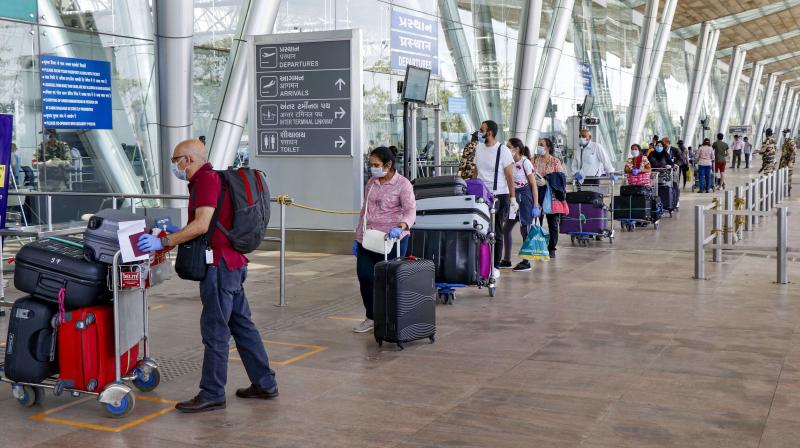A new variant of SARS-CoV2, the virus which causes Covid-19, has been detected by scientists in South Africa, Hong Kong, and Europe. The variant that has been discovered is named Omicron or B.1.1.529. Scientists and all the global countries are worried about this new variant. It has been found in the research that Omicron has an unprecedentedly large number of mutations in its genome that encodes the protein section of the virus.
It has been said that because of the large number of the mutations, the vaccines that are administered in order to battle the Covid-19 catastrophe will not be able to fight this new variant. The antibodies formed in response against the other variants of Covid-19 won’t be able to fight against Omicron, and Omicron may be able to evade the immune protection. This has created a lot of stress and anxiety about the future of the world in the next few days.

136 cases of Covid-19 were detected in South Africa on November 16th, 2021. The number of cases was raised to 1200 by 25th November. This was a drastic rate at which this variant is transmitting in a period of a very short interval of time. Scientists have sequenced more than 100 confirmed cases of Omicron infection in South Africa, and 80 % of the cases were seen in the densely populous region of Gauteng. This variant has also been confirmed to be found in Botswana, Hong Kong, and Europe as well. It is said that the variant that was founded in Africa has been spread to at least 14 other countries, which is a matter of severe concern.
Researchers calculated the R-value of the virus, which is the average of new cases caused by each infection, and it came out to be 1.47 for South Africa. In the Gauteng region, the value of R was 1.96. If the value of R is more than 1 then the outbreak is said to grow exponentially. As of now, the numbers are still low in Africa, but the virus accounts for more than 2000 cases on a daily basis and raised the concern that this is highly infectious because of its genomic mutations.

Professor Tulio de Oliveria, Director of the Centre for Educational Research and Innovation at a virtual update, talked about this new frightening variant and said the variant’s genome contains “a very unusual constellation of mutations.” Many of these are confirmed or predicted to either help the virus evade the immune system or increase its transmissibility. He highlighted the number of mutations which are 50 in the virus and only 30 is seen in the part that codes for its spike and this is the protein that helps the virus to invade the host cell.

He talked about RBD which is a receptor-binding protein, part of the spike, and binds to the receptor called ACE2 in the membrane of the human cell and there are numerous changes in the RBD of this new variant. Antibodies that bind with the RBD try to help the cell from getting infected by the various.
The beta variant had three mutations in the RBD part of its genome, and the delta had two. In the case of Omicron, according to the European Centre for Disease Prevention and Control, 15 mutations are there. In this way, RBD holds crucial importance for the Covid-19 vaccine. In the case of Omicron, not a lot can be said, but the stats aren’t very convincing.
Seeing these stats and over the concern of this new variant, numerous countries have imposed travel restrictions on the travelers coming from South African countries.
Also Read: Omicron Variant of South Africa, deadliest till now?












